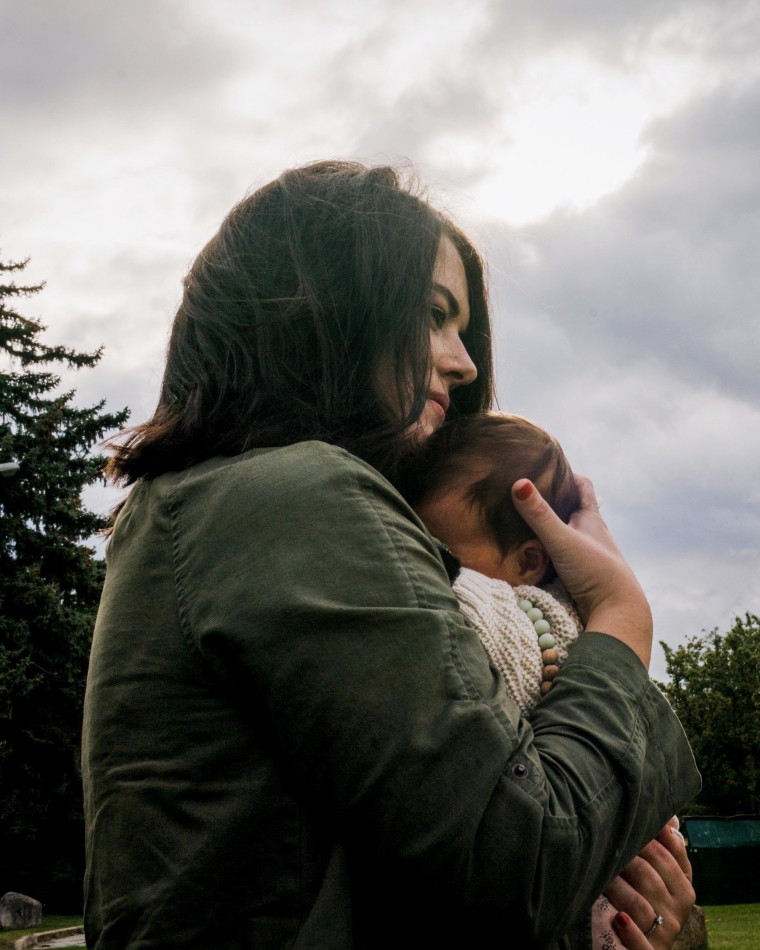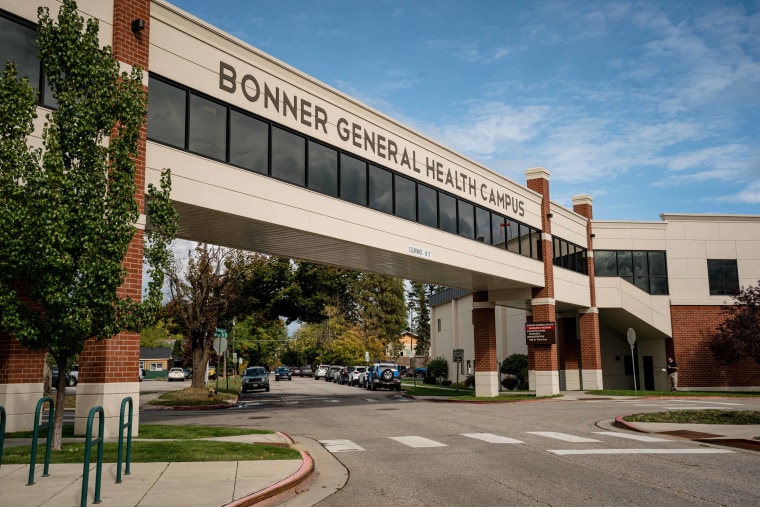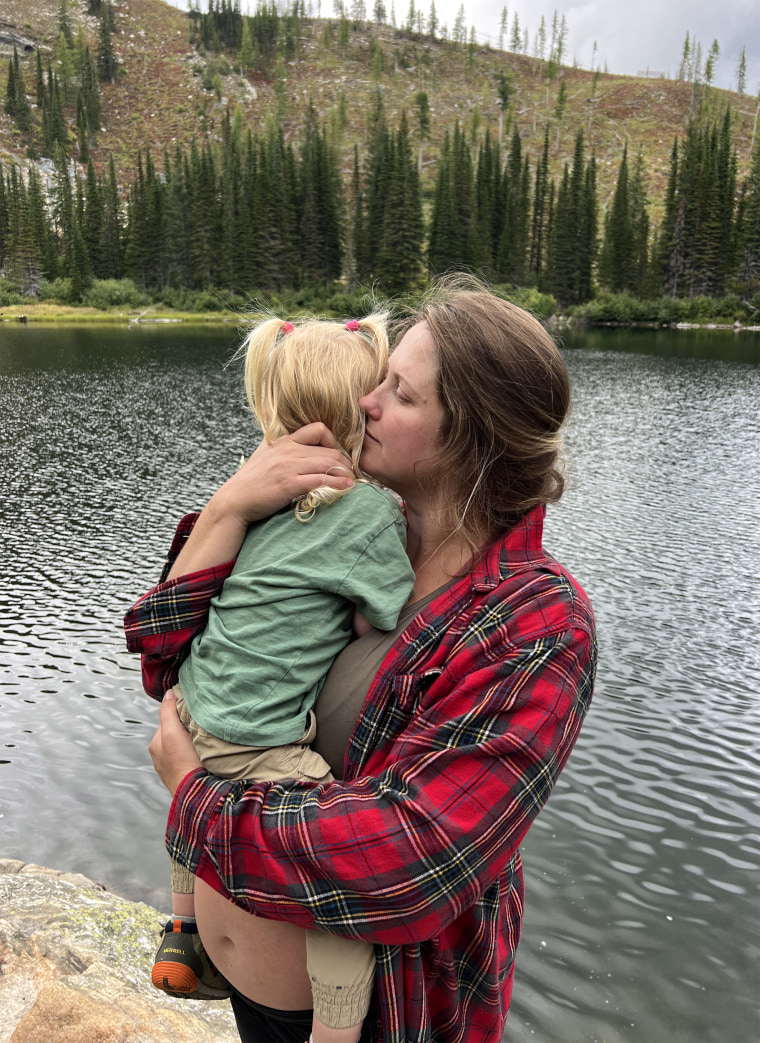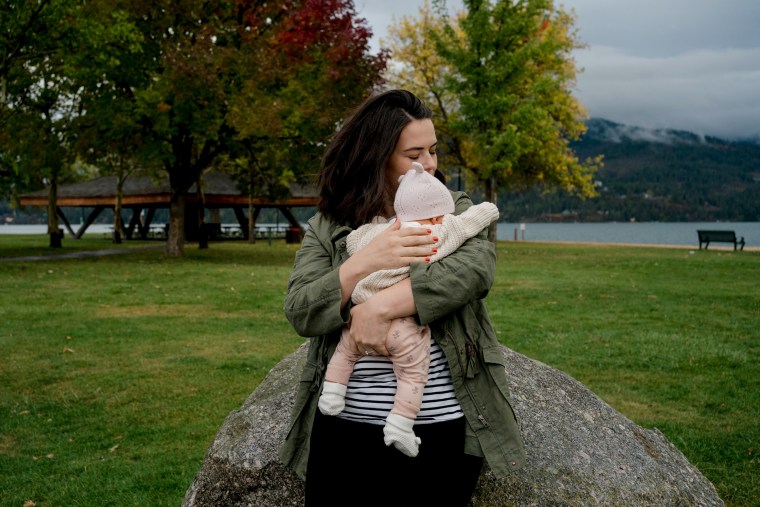Red state problems.
You are using an out of date browser. It may not display this or other websites correctly.
You should upgrade or use an alternative browser.
You should upgrade or use an alternative browser.
Another Idaho hospital announces it can no longer deliver babies
- Thread starter bnew
- Start date
More options
Who Replied?Yaboysix
That nikka
Same shyt happened in our palatka FL hospital...you gotta go to Gainesville or St Augustine to get ya baby delivered.
I actually don't think this has anything to do with us.Idaho is 81% [Non-Hispanic] white and has had Republican governors since 1995.
But the Republican party cares so much about rural white people.....
White supremacy will fukk over their own people, if it means that black people will benefit from a better healthcare system.
Based on your own stats, it's nothing but white people out there. The remainder of the 19% is basically white hispanics. Not a single black person would benefit if they decided to pay their white hospital people more.
The republican ideology is simply a "you are on your own" model . They will pay for the bare minimum. They have no intention of maintaining social services or public funds cause their corporations and rich people will have to pay for it. The only exception is places like Wyoming or Alaska which can bankroll public services and public funds because natural resources will bankroll it. Both resource rich states have no issue with socialist, labor friendly policies. Both states literally cut checks to their residents solely for being alive.

Pregnant with no OB-GYNs around: Maternity care became a casualty of Idaho's abortion ban
After an Idaho hospital closed its obstetrics department, pregnant women in the county have been left without nearby care. Their OB-GYNs fled the state.
ABORTION RIGHTS
Pregnant with no OB-GYNs around: In Idaho, maternity care became a casualty of its abortion ban
After an Idaho hospital closed its obstetrics department, pregnant women in the county have been left without nearby care. Their OB-GYNs fled the state.
Laura Olin and her newborn daughter at City Beach Park in Sandpoint, Idaho, on Sept. 26, 2023.Margaret Albaugh for NBC News
Sept. 30, 2023, 7:00 AM EDT
By Julianne McShane
If you’re pregnant in Bonner County, Idaho, you’ll likely spend a lot of time on Route 95.
Bonner General Health, a 25-bed hospital, discontinued obstetrics, labor and delivery services this year. So for residents, Route 95 is the way to the closest in-state hospital with obstetrics care, which is at least an hour’s drive south — or longer in the snowy winter.
The hospital, which staffed the county’s only OB-GYNs, cited the state’s “legal and political climate” as one of the reasons it shuttered the department. Abortion has been banned in Idaho, with few exceptions, since August 2022.
Laura Olin, 32, lives in the city of Sandpoint, where Bonner General is, and gave birth to her twin boys at the hospital in 2020. When she became pregnant again, she opted to deliver her daughter in Spokane, Washington — 90 minutes away — in August.
As the reality of doing the drive while in labor set in, she said, “it was very scary those last few weeks of pregnancy.”
It made her think differently about her previous birth experience, Olin added. “To go into labor at home and arrive at the hospital five minutes later was a blessing that I didn’t know was a blessing,” she said.

The four OB-GYNs who previously worked at Bonner General, meanwhile, have left Idaho to practice in states where abortion is legal. All four told NBC News that the state’s ban contributed to their decisions to move.
As a whole, the situation has left mothers-to-be in Bonner County to contend with an unexpected consequence of their state’s abortion policy: reduced access to medical care for women whose pregnancies are very much wanted.
Olin is one of a half-dozen pregnant or recently pregnant women who spoke to NBC News about how the closing of Bonner General’s maternity department upended their birth plans and disrupted their lives. They say further travel times have introduced logistical burdens, financial difficulties, stress and anxiety.
“I really feel like it’s inevitable that there will be poor outcomes for women and babies who now have to travel longer to care in those emergency situations,” said Elizabeth Smith, 35, a lactation consultant in Bonner County who has opted to deliver her baby — due in December — at a nearby birth center with a midwife. Delivering with a midwife is the only local option left in Bonner County.
Smith said that as a former neonatal intensive care nurse, she would have preferred a hospital but that traveling for appointments and labor would require someone to watch her four children.
“I don’t feel like that was an option for me given my large family and the need for child care,” she said.

Research has shown that women who lack access to hospitals with obstetrics care are more likely to face health consequences, including a higher risk of preterm birth, which is associated with asthma, hearing loss, intellectual disabilities and other lifelong impacts for children. An analysis published in 2019 found that rural residents had a 9% greater chance of maternal morbidity and mortality compared to urban residents, in part because of limited access and longer travel times to obstetrics care. (Women of color had at least 33% higher odds of those negative outcomes than white women regardless of where they lived, according to the research.)
Olin, a supporter of abortion rights, said the ripple effects of Idaho’s policies still caught her by surprise. She decided to cross state lines to deliver her daughter, she added, out of fear that abortion restrictions could affect her care if complications arose.
“When it actually affected my pregnancy, I couldn’t believe that that was happening,” Olin said.
Her former OB-GYN at Bonner General, Dr. Morgan Morton, who now practices in Washington, said many of her former patients — including those with opposing political views to Olin’s — shared that reaction.
“I definitely have patients that I know would’ve been in support of these laws and now are very surprised at the downstream effects,” she said.
‘In case of an emergency, what do I do?’
Bonner General announced the closing of its obstetrics department in March, citing a lower patient volume and the loss of pediatricians as factors in the decision, alongside what a spokesperson recently described as “some of the most restrictive reproductive laws in the country.”Idaho law prohibits abortion at any stage, with exceptions only to save the life of the mother, ectopic or molar pregnancies and cases of rape or incest in which the incidents were reported to police and the pregnancies are terminated within the first trimester. In April, the state also became the first to criminalize some out-of-state travel for abortion, with a law that makes helping a minor cross state lines for that purpose punishable by two to five years in prison.
In a statement to NBC News, the Bonner General spokesperson said that the services were eliminated with “a heavy heart” and that hospital providers worked with patients to coordinate alternative plans and make the transition “as easy as possible.”
“We hear the community and want desperately to meet their needs,” the spokesperson said.
Many former Bonner General patients now go to Kootenai Health in Coeur d’Alene, which is the closest in-state hospital with OB-GYNs on staff. It is more than 40 miles from Sandpoint. In June, Kootenai Health recorded its highest number of births ever, according to Kim Jorgensen, the hospital’s director of women’s and children’s services.
“When this closure was announced, we were getting a lot of calls from women asking, ‘What do I do?’” Jorgensen said.
Candice Funk, 34, is one of those patients. She moved from California to Sandpoint — and got pregnant — around the time Bonner General stopped providing obstetrics care.
Funk developed HELLP syndrome — a rare and life-threatening form of pre-eclampsia — during her last pregnancy, so this one is high-risk. That means she most likely would have had to go to Kootenai for her delivery and some appointments anyway. Even so, she said, there’s a persistent worry: “In case of an emergency, what do I do?”

During her previous pregnancies in California, Funk was a 20- or 30-minute ride from the hospital, she said. This time, she’s prepared to stay at the Ronald McDonald House — or an affordable hotel — in Coeur d’Alene if she needs more frequent monitoring.
“I know how drastic my conditions can be,” she said. “Hopefully it won’t be a surprise if something happens overnight.”
Sandpoint resident Lauren Sanders, 34, who’s due to deliver her second child in November, faced the type of situation Funk fears this summer: For a few days, she didn’t feel fetal movement.
So Sanders got in the car for a “really intense” 45-minute ride to Kootenai. Throughout the drive, she said, she kept wondering: “Is my baby still alive?”
The drive to Bonner General would have taken five minutes.
The Kootenai doctors determined that everything was fine and released Sanders after some monitoring. But if something goes wrong during her planned home birth with a midwife, she might wind up on another agonizing ride.
“I’ve had to get comfortable in the discomfort in having a ‘riskier’ birth at home,” Sanders said.

Chronic, elevated stress and anxiety during pregnancy are associated with a higher risk of high blood pressure and heart disease for the pregnant woman, preterm birth, and asthma and behavioral problems in young children, studies suggest.
Financial burdens further impede access to care
Katie Bradish, 36, said she shells out hundreds of dollars to go to prenatal appointments in Spokane, 90 minutes from her home. Each trip requires her to take time off her job as a vice president at a grilling supplies company, she said, and pay $200 for a babysitter to watch her 2-year-old daughter, plus gas money.In May, early in her pregnancy, Bradish began feeling sharp abdominal pain and decided to go to the Bonner General emergency room because of the distance she would have had to drive to reach an OB-GYN’s office. The visit, which included an ultrasound scan and exam, showed no major problems, and she later received a bill for more than $475 out of pocket. The copay for an ultrasound appointment with an OB-GYN would have cost her $23, she said.
“It’s absolutely a burden,” Bradish said. “This is thousands of dollars we would have in our family’s economy.”
For low-income residents of Sandpoint, such travel brings particular challenges. Around 14% of the city’s population live in poverty, which is above the state and national averages.
Drs. Amelia Huntsberger, Kristin Algoe and Lindsay Conner — former Bonner OB-GYNs who now work in Oregon, New York and Colorado, respectively — each said some of their Sandpoint patients had to start strategizing about whose car they could borrow or how they would pay for gas to travel for maternity care after the department closed.
Huntsberger, who was on the Idaho Health and Welfare Department’s now-disbanded Maternal Mortality Review Committee, emphasized that poverty and maternal mortality are intertwined. In Idaho, she said, Medicaid recipients accounted for the majority of pregnancy-related deaths in recent years. Despite the committee’s recommendations to expand postpartum Medicaid coverage to last 12 months, Idaho was one of just three states where legislators finished this year’s session without doing so.
“A lot of those people for whom it’s going to get harder, they don’t have a lot of power,” Huntsberger said. “There’s no microphone readily accessible to them, so many of them are going to suffer in the shadows.”
“They took such great care of us,” she said. “The care was personal.”
Krista Haller, a therapist in Sandpoint who works with pregnant and postpartum women, said she has heard similar sentiments from many local moms. Some lament the impact on their former doctors, Haller said, telling her: “These people are wonderful. They helped me so much in this very specific time of my life, and now they’re being hurt by these laws.”
The Bonner General spokesperson wrote that hospital leaders “support our providers who made the hard decision to move.”
Haller said she has also counseled local mothers who are thinking about getting pregnant again but worry about doing so without easily accessible obstetrics care.
“It’s a lot scarier, and they’re a lot more aware of the decision to have a child and whether or not it’s worth it to move forward to have a child and go through that journey knowing that the health care just isn’t there,” she said.
 The town of Sandpoint, Idaho.Ekaterina Bespyatova / Alamy Stock Photo
The town of Sandpoint, Idaho.Ekaterina Bespyatova / Alamy Stock Photo
Bradish said her biggest fear is about the timing of her due date in January — what she calls “blizzard time,” given that Sandpoint can get more than 30 inches of snow that month.
She has already stocked up on “shower curtains and some rubber gloves for the car,” Bradish said, in case she winds up delivering on the drive to Spokane.
“That may sound like a joke, but it’s not,” she said.
Because Sandpoint has a birth center and local midwives, the area isn’t technically among the more than 1,100 counties nationwide considered to be maternity care deserts by the nonprofit organization March of Dimes. Such places lack hospitals providing obstetrics care, birth centers, OB-GYNs and certified nurse midwives. In addition, an OB-GYN from the Kootenai Clinic began traveling to Sandpoint once a week in August to make it easier for residents to attend prenatal appointments and access gynecological care. That doctor sees nearly 30 patients a day in Sandpoint, a hospital spokesperson said.
But 13 of Idaho’s 44 counties are maternity care deserts. The number of those deserts has risen nationwide in the past few years, according to March of Dimes. They’re more likely in states that have banned or restricted abortion, according to an analysis from the Commonwealth Fund, a healthcare research foundation.
The month Bonner General made its announcement, another Idaho hospital, Valor Health, announced it was discontinuing labor and delivery services because of staff shortages, declining births and financial difficulties. A hospital in Oregon stopped providing obstetric services in August, as did one in Tennessee this month and four hospitals in California so far this year.
A survey of third- and fourth-year medical students conducted this spring found that nearly 58% reported being “unlikely or very unlikely to apply to a single residency program in a state with abortion restrictions.” Data collected by the Association of American Medical Colleges shows that states with abortion bans had a 10.5% drop in applications for OB-GYN residencies this year.
About 40% of OB-GYNs in states with abortion bans say they’ve felt constraints in providing necessary medical care since the Supreme Court’s Dobbs decision, which struck down constitutional protections for abortion, according to a survey published in June by the nonprofit research organization KFF. More than 60% said they’re concerned about legal risk when they make decisions about the necessity of abortions.
Carole Joffe, a professor of obstetrics and gynecology at the University of California, San Francisco, said she sees Idaho as “the canary in the coal mine.”
“We will continue to see doctors fleeing these states that have banned abortion,” Joffe said.
Idaho state Sens. Todd Lakey and C. Scott Grow, the Republicans who co-sponsored Idaho’s abortion trigger ban in 2020, didn’t respond to requests for comment.
State Rep. John Vander Woude, who chairs the House Health and Welfare Committee and co-sponsored the trigger ban, said he and other Republican legislators did not foresee all the ripple effects of the law. “There needs to be clearer guidelines on what becomes criminalized,” he said, as well as broader exceptions to protect the health of the mother, not just her life.
“It’s really hard, I think, right now, under the current language to recruit or try to keep them,” Vander Woude said of the state’s OB-GYNs.
Idaho state Rep. Julianne Young, who also co-sponsored the ban, added that lawmakers this year already “took steps to clear up concerns over things such as ectopic pregnancies and provide more clarity for health care providers” and will continue to assess the medical community’s concerns.
Bonner General’s former OB-GYNs said they didn’t take their decisions to leave Sandpoint lightly.
“Thinking about what our community has lost — that is gutting,” Huntsberger said.
 Laura Olin and her daughter in Sandpoint on Sept. 26.Margaret Albaugh for NBC News
Laura Olin and her daughter in Sandpoint on Sept. 26.Margaret Albaugh for NBC News
Olin and her husband plan to follow the doctors’ example: They hope to move out of the state within the year. Idaho isn’t a place where she’d want to be pregnant again, Olin said — or where she wants to raise a daughter.
“If you’re planning to have a family, why would you move here?” she said.
This article was produced as a project for the USC Annenberg Center for Health Journalism’s 2023 National Fellowship.
“It’s absolutely a burden,” Bradish said. “This is thousands of dollars we would have in our family’s economy.”
For low-income residents of Sandpoint, such travel brings particular challenges. Around 14% of the city’s population live in poverty, which is above the state and national averages.
Drs. Amelia Huntsberger, Kristin Algoe and Lindsay Conner — former Bonner OB-GYNs who now work in Oregon, New York and Colorado, respectively — each said some of their Sandpoint patients had to start strategizing about whose car they could borrow or how they would pay for gas to travel for maternity care after the department closed.
Huntsberger, who was on the Idaho Health and Welfare Department’s now-disbanded Maternal Mortality Review Committee, emphasized that poverty and maternal mortality are intertwined. In Idaho, she said, Medicaid recipients accounted for the majority of pregnancy-related deaths in recent years. Despite the committee’s recommendations to expand postpartum Medicaid coverage to last 12 months, Idaho was one of just three states where legislators finished this year’s session without doing so.
“A lot of those people for whom it’s going to get harder, they don’t have a lot of power,” Huntsberger said. “There’s no microphone readily accessible to them, so many of them are going to suffer in the shadows.”
Losing ‘personal’ care
Olin said her birth experience in Spokane made her miss the care she got at Bonner General, where Morton was present throughout her 16-hour labor. At one point, the doctor even made a peanut butter and jelly sandwich for Olin’s husband, who is vegan and didn’t have anything to eat.“They took such great care of us,” she said. “The care was personal.”
Krista Haller, a therapist in Sandpoint who works with pregnant and postpartum women, said she has heard similar sentiments from many local moms. Some lament the impact on their former doctors, Haller said, telling her: “These people are wonderful. They helped me so much in this very specific time of my life, and now they’re being hurt by these laws.”
The Bonner General spokesperson wrote that hospital leaders “support our providers who made the hard decision to move.”
Haller said she has also counseled local mothers who are thinking about getting pregnant again but worry about doing so without easily accessible obstetrics care.
“It’s a lot scarier, and they’re a lot more aware of the decision to have a child and whether or not it’s worth it to move forward to have a child and go through that journey knowing that the health care just isn’t there,” she said.

Bradish said her biggest fear is about the timing of her due date in January — what she calls “blizzard time,” given that Sandpoint can get more than 30 inches of snow that month.
She has already stocked up on “shower curtains and some rubber gloves for the car,” Bradish said, in case she winds up delivering on the drive to Spokane.
“That may sound like a joke, but it’s not,” she said.
Because Sandpoint has a birth center and local midwives, the area isn’t technically among the more than 1,100 counties nationwide considered to be maternity care deserts by the nonprofit organization March of Dimes. Such places lack hospitals providing obstetrics care, birth centers, OB-GYNs and certified nurse midwives. In addition, an OB-GYN from the Kootenai Clinic began traveling to Sandpoint once a week in August to make it easier for residents to attend prenatal appointments and access gynecological care. That doctor sees nearly 30 patients a day in Sandpoint, a hospital spokesperson said.
But 13 of Idaho’s 44 counties are maternity care deserts. The number of those deserts has risen nationwide in the past few years, according to March of Dimes. They’re more likely in states that have banned or restricted abortion, according to an analysis from the Commonwealth Fund, a healthcare research foundation.
The month Bonner General made its announcement, another Idaho hospital, Valor Health, announced it was discontinuing labor and delivery services because of staff shortages, declining births and financial difficulties. A hospital in Oregon stopped providing obstetric services in August, as did one in Tennessee this month and four hospitals in California so far this year.
Is Idaho a ‘canary in the coal mine’?
The former Bonner General OB-GYNs are not the only doctors choosing to practice in states without strict abortion bans.A survey of third- and fourth-year medical students conducted this spring found that nearly 58% reported being “unlikely or very unlikely to apply to a single residency program in a state with abortion restrictions.” Data collected by the Association of American Medical Colleges shows that states with abortion bans had a 10.5% drop in applications for OB-GYN residencies this year.
About 40% of OB-GYNs in states with abortion bans say they’ve felt constraints in providing necessary medical care since the Supreme Court’s Dobbs decision, which struck down constitutional protections for abortion, according to a survey published in June by the nonprofit research organization KFF. More than 60% said they’re concerned about legal risk when they make decisions about the necessity of abortions.
Carole Joffe, a professor of obstetrics and gynecology at the University of California, San Francisco, said she sees Idaho as “the canary in the coal mine.”
“We will continue to see doctors fleeing these states that have banned abortion,” Joffe said.
Idaho state Sens. Todd Lakey and C. Scott Grow, the Republicans who co-sponsored Idaho’s abortion trigger ban in 2020, didn’t respond to requests for comment.
State Rep. John Vander Woude, who chairs the House Health and Welfare Committee and co-sponsored the trigger ban, said he and other Republican legislators did not foresee all the ripple effects of the law. “There needs to be clearer guidelines on what becomes criminalized,” he said, as well as broader exceptions to protect the health of the mother, not just her life.
“It’s really hard, I think, right now, under the current language to recruit or try to keep them,” Vander Woude said of the state’s OB-GYNs.
Idaho state Rep. Julianne Young, who also co-sponsored the ban, added that lawmakers this year already “took steps to clear up concerns over things such as ectopic pregnancies and provide more clarity for health care providers” and will continue to assess the medical community’s concerns.
Bonner General’s former OB-GYNs said they didn’t take their decisions to leave Sandpoint lightly.
“Thinking about what our community has lost — that is gutting,” Huntsberger said.

Olin and her husband plan to follow the doctors’ example: They hope to move out of the state within the year. Idaho isn’t a place where she’d want to be pregnant again, Olin said — or where she wants to raise a daughter.
“If you’re planning to have a family, why would you move here?” she said.
This article was produced as a project for the USC Annenberg Center for Health Journalism’s 2023 National Fellowship.

Idaho doctor who worked at closed maternity ward says abortion ban harmed recruiting | Colorado Newsline
A hospital in a rural area outside of Idaho’s capital city of Boise closed its labor and delivery and neonatal intensive care units April 1, citing declining birth rates and staffing issues. West Valley Medical Center is the third facility to close its maternity services in Idaho since the state...
 coloradonewsline.com
coloradonewsline.com
Idaho doctor who worked at closed maternity ward says abortion ban harmed recruiting
BY: KELCIE MOSELEY-MORRIS - APRIL 21, 2024 4:00 AM

West Valley Medical Center in Caldwell, Idaho, closed its labor and delivery unit on April 1 for financial and staffing reasons. A former OBGYN who worked at West Valley for decades said the state’s abortion laws made it difficult to fill vacant OB positions. (Kelcie Moseley-Morris/States Newsroom)
A hospital in a rural area outside of Idaho’s capital city of Boise closed its labor and delivery and neonatal intensive care units April 1, citing declining birth rates and staffing issues.
West Valley Medical Center is the third facility to close its maternity services in Idaho since the state enacted a near-total abortion ban in August 2022. The county where the medical center is located had more than 3,300 births in 2022, and West Valley sees about 45,000 outpatient visitors in a year. The entire medical center has 112 beds.
The law subjects physicians to two to five years in prison, fines and the loss of their medical license for providing an abortion, even in emergency situations, at least until the U.S. Supreme Court makes a definitive ruling on the federal Emergency Medical Treatment and Labor Act’s application in Idaho. Oral arguments in that case will take place April 24.
A February report by a coalition of Idaho physicians found the state lost 22% of practicing OB-GYNs since the ban took effect, and 55% of maternal-fetal medicine specialists. The first closure happened in Sandpoint, at Bonner General Hospital in March 2023. The hospital cited the political climate along with staffing issues in its announcement as the reason for closure.
West Valley did not specifically call out the abortion ban or other politics as a reason for closure, but Dr. Ted Colwell, who worked there full time for many years and as a retiree until the April 1 closure, told States Newsroom he thinks it was a factor. Colwell describes himself as “pro-life,” but he is concerned about the state of medical care in Idaho.
His responses to questions have been edited for clarity and conciseness.
GET THE MORNING HEADLINES DELIVERED TO YOUR INBOX
SUBSCRIBE
States Newsroom: What’s your experience with West Valley Medical Center in Caldwell?
Dr. Ted Colwell: I moved here from a residency training and started practicing in 1982 at what was then called the Caldwell Women’s Clinic, which started in 1969. I was the fourth physician in the group, and I’ve been basically in that practice for 36 years, though it has gone through different names and changes of staff. West Valley was always owned by HCA Healthcare, and we had a general OB practice. Someone asked me how many deliveries I’ve done over the years, and it’s around 7,000.

SN: When did you retire?
Colwell: I retired in 2016. Because our group is accredited by the American Institute of Ultrasound Medicine, they needed someone to take on the role of reading ultrasounds for the clinic, so I’ve been doing that since I retired but that’s mostly from home.
SN: What was it like when you were told about the closure?
Colwell: I knew we were struggling, but when the announcement came, I was shocked. Caldwell is kind of a funny hospital in a sense that it’s kind of rural, but we had excellent maternity services and neonatal intensive care there. The hospital serves not only Caldwell, but a lot of the surrounding areas, so it’s not a small rural hospital, it’s a small regional hospital. St. Lukes and Saint Alphonsus (the two major hospital systems in the state) have spread their hospitals west at the same time, so in a way West Valley became surrounded, but that being said, we still have a very loyal patient population. I’m just sorry that something couldn’t be done to keep the services going at West Valley. I think they tried everything they could.
SN: What do you know about the staffing issues that led in part to the closure?
Colwell: I’ve been sort of involved with some of the recruitment efforts and interviewing of some of the potential candidates. Last year, we had five potential candidates, and due to various situations, all five decided to go elsewhere. Idaho used to be a state that attracted OBs for the outdoors, for the family values, the recreation — it’s a good place to live. But I think the overturn of Roe v. Wade had an impact, even though Idaho wasn’t known for large numbers of abortions. I know abortions happened here, and some physicians provided them, but the vast majority of the physicians I knew over the years did not do elective terminations. It didn’t really become an issue for me until this whole issue with the hospital came to a head.
People are going to suffer under this law, and it makes me mad that politicians get in the way of evidence-based medicine. I think they should not make it a criminal offense to take good care of women who need medical care and treatment.
– Dr. Ted Colwell
What I heard from others was that those who were interviewed in the last year expressed concerns regarding the legal climate and concerns of prosecution, which led them to not take our offer of employment. These concerns were from those that were relatively fresh out of training. I, on the other hand, wouldn’t care about that, and would do the right thing for the patient regardless. I guess that comes with 40-plus years of experience.
SN: Why do you think closing the labor and delivery unit is cause for concern?
Colwell: I feel that women and mothers bring families to the hospital, children and husbands, and when you lose that, there’s a risk of losing a lot of services at the hospital. People will be starting to drift off to other facilities further away to get their care. And when you come to the emergency room, if you’ve got a condition where it’s gynecological and there’s no one in the hospital who can take care of it, to me it puts the hospital in a bad situation. If a patient halfway through their pregnancy is told, “You’re going to have to find somebody else,” first of all, can they find somebody else? And two, can the other clinics who are still active absorb these patients? It’s going to put stress on the whole system.
SN: You described yourself as “pro-life.” Tell me what the difference is for you when it comes to this kind of medical care.
Colwell: There comes a time when you have to make a medical decision for the life of the mother. It’s taking care of patients. People are going to suffer under this law, and it makes me mad that politicians get in the way of evidence-based medicine. I think they should not make it a criminal offense to take good care of women who need medical care and treatment.
SN: What else do you want to add about the current landscape of maternity care in Idaho?
Colwell: I wish the legislators that push these laws through would think about the consequences of their actions. I think they kind of shoot from the hip, is my feeling, and they’re trying to make a statement, and I have not seen a real push (from organizations) to educate the legislators as to what the heck they’re doing. Why don’t you consult with the people that are involved? I mean, my gosh.
I hope West Valley can survive this. And it probably will. But it’s going to affect a lot of people in the meantime.
Why do you insist on copy-pasting articles? Just post the link. Journalism has enough issues without you stealing content.
Idaho doctor who worked at closed maternity ward says abortion ban harmed recruiting | Colorado Newsline
A hospital in a rural area outside of Idaho’s capital city of Boise closed its labor and delivery and neonatal intensive care units April 1, citing declining birth rates and staffing issues. West Valley Medical Center is the third facility to close its maternity services in Idaho since the state...coloradonewsline.com
Kyle C. Barker
Migos VERZUZ Mahalia Jackson
There you go and unsurprising, especially for rural hospitals. That small of a number is not enough to warrant such services. Even more, they probably have issues keeping pertinent physicians on staff in those and other specialties. Between this and the emergence of telehealth, it's cheaper and easier to pass this on to larger hospitals. Rural hospitals are just that limited.
I think it's also a testament that the virtues of health care and capitalism don't mix well.
Why do you insist on copy-pasting articles? Just post the link. Journalism has enough issues without you stealing content.
the site is small and it's obvious a lot of posters comment on headlines instead of reading the text and it also allows others to easily cite in a discussion.
another reason is linkrot and content ending up behind a paywall after a certain time.
some of the articles I posted back in 2020 aren't even online anymore.
edit:
we're in a age of massive misinformation and clickbait,
go check out a lot of other threads people created where they post cherry picked quotes or paragraphs to form their own narrative. I view that practice as propaganda because it is when the narrative across several posts by the thread starter becomes obvious. sometimes the posters don't even provide a link to the text they share. i've lost count the number of times I've had to look up the source of a text that was posted or read the entire article and find context that was completely omitted by the OP.
news sites also tend to change article titles minutes, hours or days after posting them to their site.
Last edited:
Idaho medical system can't deliver babies and won't allow abortion for any reason. Make sense of this shyt.
Magas going out sad with their practical experiments
Magas going out sad with their practical experiments
Nothing but churches & Dennys (if you lucky) in Idaho. Then you have north idaho closer to Washington state..you'll see a few more diversity.
